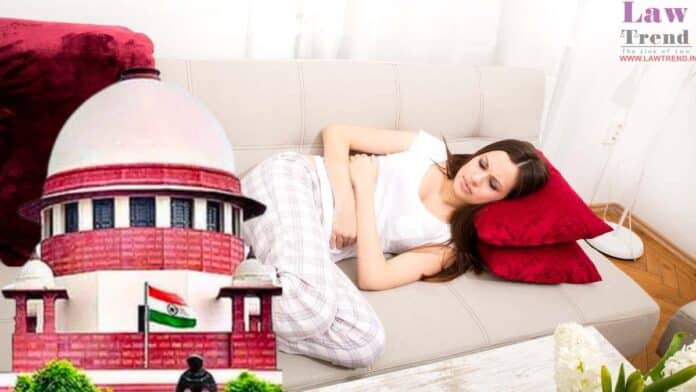On July 8, the Supreme Court of India mandated the Central Government to create a model policy regarding menstrual leave for women employees, emphasizing the need for consultation with state governments and various stakeholders. The directive was issued by a bench led by Chief Justice D.Y. Chandrachud, along with Justices J.B. Pardiwala and Manoj Misra, during the proceedings of a relevant petition.
The justices articulated concerns that judicial intervention in granting menstrual leave could inadvertently result in negative consequences for women’s employment. The fear is that employers might hesitate to hire women if such leave were mandated, potentially leading to women being marginalized in the workplace. “We do not want that,” stated the bench, reinforcing that this matter should primarily be addressed through governmental policy rather than court mandates.
The Supreme Court pointed out that the issue of menstrual leave intertwines with broader state policy objectives and therefore should not be unilaterally decided by the judiciary. This perspective aligns with the court’s previous stance when it disposed of a similar plea for menstrual leave for women students and working women, directing that such policy suggestions should be presented to the Central Government.
During the hearing, the petitioner’s lawyer, Rakesh Khanna, representing Shailendra Tripathi, was advised to engage with the secretary of the Ministry of Women and Child Development and Additional Solicitor General Aishwarya Bhati for further actions. The court has requested the secretary to seriously consider the development of a comprehensive policy after thorough consultations.
Also Read
The Supreme Court also clarified that its directive for a central model policy should not restrict individual states from pursuing their own initiatives concerning menstrual leave.




